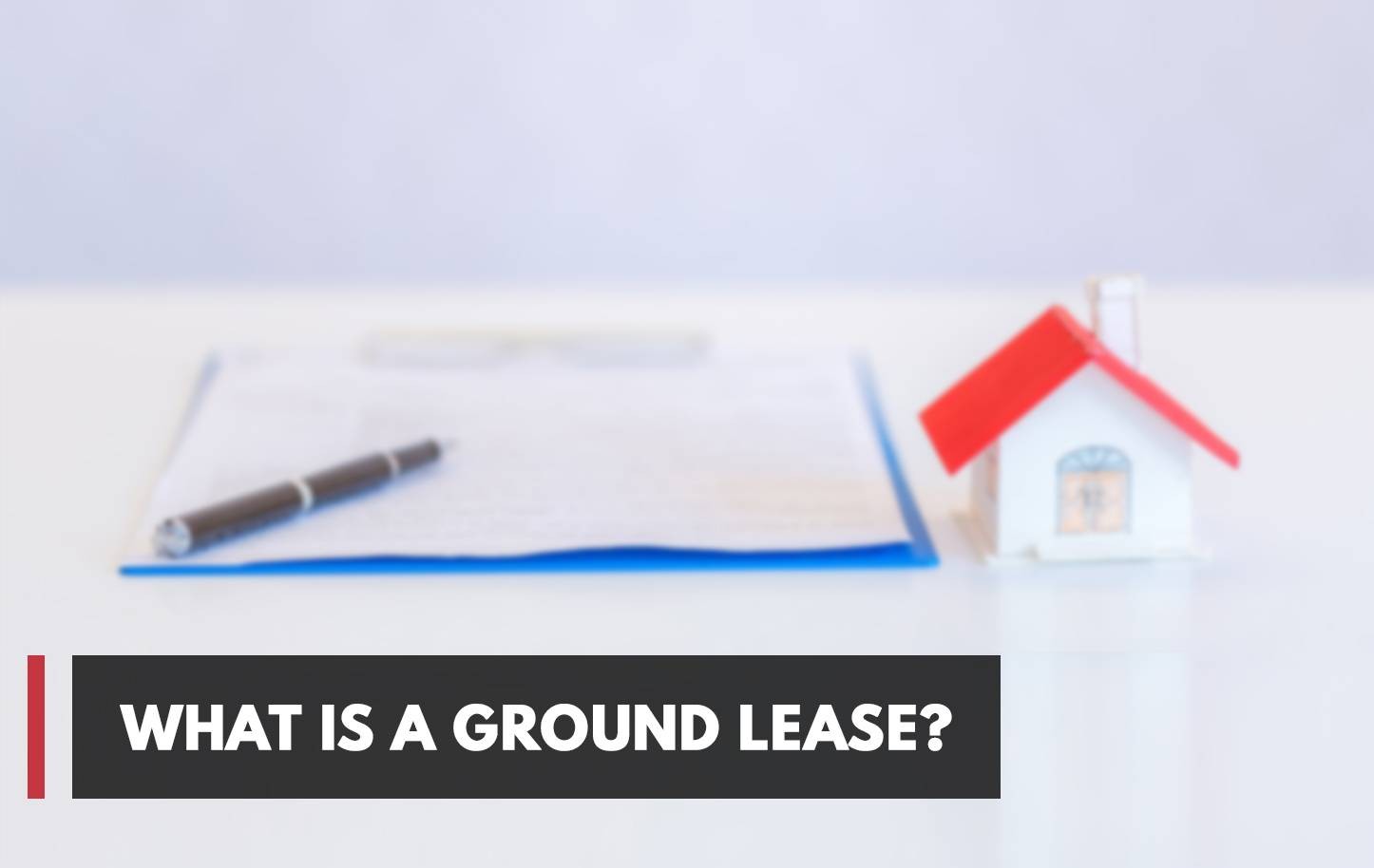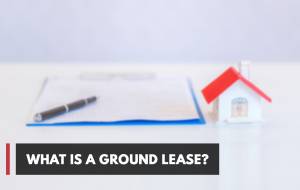
What is a ground lease?
Published At: Tue, 09/07/2021 - 00:24
A ground lease is a type of commercial real estate lease under which the tenant pays rent for the land and is allowed by the landlord to develop the land with his or her own means.
If you are on your way to starting a business and are looking for a location for it, you may have considered options like leasing a property, or purchasing a building, etc. Making the right choice amongst the available options can often come with complications. Since you probably want to combine efficiency with affordability, you may hesitate over your options for a while. If you have not considered the option of ground leasing, keep reading this article as this may become the key to your new business!
What is a ground lease?
A ground lease is a type of commercial real estate lease under which the tenant pays rent for the land and is allowed by the landlord to develop the land with his or her own means.
In other words, the tenant pays for only the land that the landlord owns while being able to make any improvements or developments on it according to their wishes and needs.
A ground lease is also referred to as a land lease since the tenant gets to pay only for the initial land they are renting. For any further developments or improvements to the land, the tenant is not obligated to pay anything to the landlord since the tenant is the one undertaking the costs of those advancements.
What are the characteristics of a ground lease?
To understand how convenient ground leasing might be for you as a lender or a tenant, it is crucial to familiarize yourself with the main characteristics that make up ground leases.
A ground lease comes with:
- Rights of the landlord and of the tenant
- Title insurance
- Financing conditions
- Terms of the lease
- Use provisions
- Default conditions
- Fees
Those are the essentials that a ground lease includes. An important characteristic to distinguish a ground lease with is its condition of being long-term. Yes, ground leases are known to be signed over a long period of time. This comes with certain benefits for both the landlord and the tenant.
Advantages of a ground lease
A ground lease represents numerous benefits both for the landlord and the tenant. Franchised businesses like McDonald’s and Starbucks have also opted for a ground lease for some of their branches. Their successful business background should seem a convincing incentive for you to take a closer look into the potential advantages of a ground lease.
Advantages for the tenant
- Lower upfront cost! Since the tenant gets to pay for only the land they are leasing and nothing else that accompanies it, the initial cost that they are required to pay is incomparably lower than it would be if they were to rent a fully developed project with a commercial building and parking lot. This is particularly a desirable option for businesses that are taking their first steps in acquiring a business location. Since they do not yet have revenues generated from the business that would have enriched their budget for a built out project, this may be a more affordable option at this stage.
- Full access to the land! Unlike other types of commercial leases, ground leasing enables the tenants to amend the land they are renting, allowing them to design it according to their own needs and start new constructions with materials of their choice.
If you have a plan for how you want to develop your building and grow your business but do not have enough money to purchase land for it, ground leasing can be the way to go.
- Long-term lease agreement! As already mentioned, the ground lease is typically provided for a longer period than other types of commercial leases. For many tenants, it might seem risky to start a construction project on someone else’s land. However, the long-term agreement enhances the tenant’s opportunities of a higher return on their investment when they constructed a building.
Advantages for the landlord
- Ownership of property + amendments! Even though ground leasing might not promise as big rent returns for the landlord as other types of commercial leases might, it comes with the greatest long-term benefits. All the improvements and developments that a tenant will be making on the land will be under the landlord’s ownership once the agreement is over.
- Combined income and investment! Unlike other types of commercial leases, ground leasing is often referred to as a type of investment in the world of commercial real estate leasing and investments. Not only does the landlord generate a constant monthly income in the form of incoming rent but it also automatically invests in the appreciation of the land by spending no money on it.
Disadvantages of a ground lease
While ground leasing might be the best option for many business owners and landlords, it comes with its downsides as every type of commercial investment does.
Let’s evaluate the probable risks that tenants and landlords may face if choosing ground leasing.
Disadvantages for the tenant
- Amendment costs! As understood, tenants are the ones to take care of all the improvements they wish to see on the land that they are renting. In ground leasing they cannot require the landlord to provide them with anything else than the land. Thus, they should manage their budget in a way that would help them take care of the necessary costs of future constructions and land improvements.
- Tax and insurance costs! The tenant will also be responsible for paying the taxes and the insurance costs. Although there might be chances to lower the tax burden, the fee is often to be paid by the tenant.
- No access to full control! It is often the case that the tenant has to get permission from the landlord prior to starting development or construction. This results in a lack of complete control of the property.
- Investing in somebody else’s capital! Even though the upfront cost is relatively low in ground leasing, all the money that the tenant will be investing in the construction of a building eventually becomes the landlord's capital gain. This leaves the tenant with no ownership after the lease agreement is over.
Disadvantages for the landlord
- Less control on the property! Although the landlord is the one giving permission to the tenant for the improvements, he or she inevitably eliminates their control over the processes taking place and decisions carried out by the tenant.
- No access to the land for a long period of time! As explained, a ground lease often has long terms, which means that the landlord might not have access to their land for decades until the agreement is over. Further, they are left with whatever the tenant leaves behind.
Bottom line
As seen, ground leasing can be a great option for businesses looking to save money in initial leasing costs. It seems to be an effective solution both for the tenant and the landlord in this case as the landlord ends up having their land improved and taken care of while the tenant manages to generate revenues and have temporary ownership of the land.


